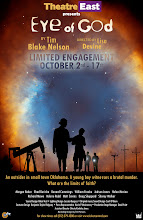By ROXANA HEGEMAN (AP) – 31 minutes ago
Scott Roeder, 51, has pleaded not guilty to first-degree murder and aggravated assault charges in the May 31 shooting death of Tiller in the foyer of his
Roeder has co
urt-appointed defense attorneys, but he apparently has now turned to Michael Hirsh, the lawyer who represented Paul Hill on appeal for killing a
Hirsh confirmed he has spoken once to Roeder in recent weeks about representing him, but he has not yet been retained. Hirsh said he had not researched the facts of the case or
Roeder's trial is scheduled for Sept. 21, though public defender Mark Rudy said he anticipates filing for a continuance.
Rudy declined to comment on Hirsh's possible role in the case. Roeder did not respond to a letter from the AP seeking comment.
The
But Hirsh discounted the suggestion that if a jury acquitted Roeder of murder based on such a defense, it would lead to an open se
ason on abortion doctors.
"It has been open season on unborn children for over 30 years. I think on abortionists there will be a bag limit," Hirsh said in a phone interview this week from his Kennesaw,
He previously represented anti-abortion activist Regina Dinwiddie of Kansas City, Mo., who was among the first protesters targeted in 1995 under the Freedom of Access to Clinic Entrances act. Dinwiddie was barred from going within 500 feet of a clinic.
The principle of self-defense and the defense of another has been recognized for centuries, Hirsh said. But he acknowledged its use in abortion-related cases has been stifled, saying that in Hill's case, the prosecutor and judge made sure jurors wouldn't hear it.
"We don't know if it would have prevailed or not and they were scared out of their mind, and you could see it, that it might have," Hirsh said. "And so it's not fair to say it never worked. Well, it hasn't been tried, either."
Richard Levy, a professor at the University of Kansas School of Law, said such defenses can work, but not necessarily in the context of abortion. The law requires that the threat be imminent, the force reasonable in response and the activity involved unlawful.
Any claim that killing an abortion provider is justifiable likely would fail, he said.
"In particular in the circumstances of the murder of Dr. Tiller there is an imminence problem, there is no imminent threat and, more fundamentally, the activities he was engaged in were legal," Levy said.
The question is
whether a judge would allow jurors to consider that defense.
Wichita attorney E. Jay Greeno, who defended Rachelle "Shelley" Shannon for shooting Tiller in both arms in 1993, said the judge repeatedly shut her down when she tried to testify about abortions the doctor performed.
Procedurally, the judge in Roeder's case would likely hold a pretrial hearing on whether Roeder's attorneys could raise that defense at trial.
"There might be some hope that there would be jury nullification — the jury would vote to acquit — if there were right-to-life advocates within the jury who accepted the argument that an unborn child is a human being and that abortion is murder and therefore the murder of a physician who performs abortion is also justifiable," Levy said.
Dave Leach, an anti-abortion activist in
Rudy acknowledged that Roeder's attorneys have received several suggested defense strategies, adding that they have given them the "appropriate due response."
Copyright © 2009 The Associated Press. All rights reserved.

FILE -In this July 28, 2009 file photo, Scott Roeder, left, attends his preliminary hearing in court in


No comments:
Post a Comment